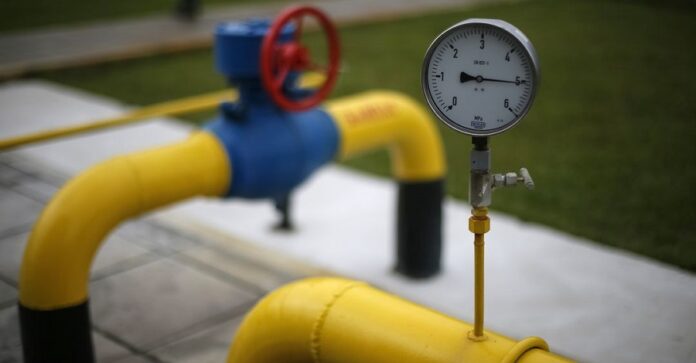Ukraine’s gas grid operator says it is cutting Russian gas flowing to Europe through two key sections of its pipeline network from Wednesday, citing “force majeure” because of interference in its operations by occupying forces, according to Politico.
European natural gas prices rose after Russian transit flows via one of the key entry points in Ukraine stopped.
The benchmark contract gained as much as 6.8% at the open. Ukraine’s gas network operator said late Tuesday it would stop receiving the fuel into the Sokhranivka gas metering station at 7 a.m. local time because it can’t control the infrastructure in the occupied territories, Bloomberg reports.
Russian gas giant Gazprom PJSC declined the Ukrainian grid’s proposal to move shipments to the other entry point, Sudzha.
The development marks the first time the war in Ukraine has disrupted gas deliveries to Europe. Russian gas had been flowing via both entry points normally despite the conflict, although most of the time at lower rates than the transit deal envisages.
Sokhranivka handles about a third of Russian gas flows entering Ukraine. The rest passes through the Sudzha station, which is further away from the occupied territories in eastern Ukraine.
The Gas Transmission System Operator of Ukraine said occupiers are making it impossible to fulfill obligations at the connection point, as well as the first compressor station on the pipeline route in Ukraine. As a result, the grid issued a force majeure, meaning it is unable to provide deliveries for reasons beyond its control.
A Gazprom spokesman confirmed it received notice from Ukraine, but it didn’t receive confirmation of force majeure.
Orders via Sudzha are set at 72 million cubic meters for Wednesday, higher than for Tuesday, but still below nominations for both stations that day, according to the grid. Flows via Ukraine to Slovakia’s Velke Kapusany, the main transit route to Europe, are also set to fall 18%, to the lowest since April 30 based on grid data.


